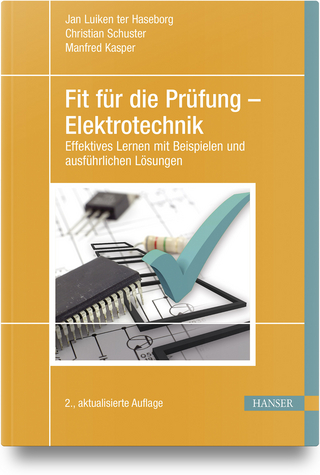
PID Control
New Identification and Design Methods
Seiten
2005
Springer London Ltd (Verlag)
978-1-85233-702-5 (ISBN)
Springer London Ltd (Verlag)
978-1-85233-702-5 (ISBN)
Presents a set of contributions illustrating methods that cover the range of process model assumptions systematically. This book includes an introduction to proportional-integral-derivative (PID) control technology features and typical industrial implementations, and PID control concepts for multivariable processes.
The industrial evidence is that for many control problems, particularly those of the process industries, theProportional,Integral andDerivative(PID) controller is themaincontrol tool beingused. Forthese industrial problems, the PID control module is a building block which provides the regulation and disturbance rejection for single loop, cascade, multi-loop and multi-input multi-output control schemes. Over the decades, PID control technology has undergone many changes and today the controller may be a standard utility routine within the supervisory system software, a dedicated ha- ware process controller unit or an input-output module within a programmable electronic system which can be used for control system construction. With such a well-developed industrial technology available it is not surprising that an academic colleague on learning that we planned a book on PID control exclaimed, "Surely not! Is there anything left to be said?". Of course, the short answer is that technology does not stand still: new solution capab- ities are always emerging and PID control will evolve too.
Indeed, the Ziegler-Nichols rules have been famous for over sixty years and the Astrom and Hagglund relay experiment has been around for twenty years, so it would be disappointing if some new approaches to PID control had not emerged in the me- time.
The industrial evidence is that for many control problems, particularly those of the process industries, theProportional,Integral andDerivative(PID) controller is themaincontrol tool beingused. Forthese industrial problems, the PID control module is a building block which provides the regulation and disturbance rejection for single loop, cascade, multi-loop and multi-input multi-output control schemes. Over the decades, PID control technology has undergone many changes and today the controller may be a standard utility routine within the supervisory system software, a dedicated ha- ware process controller unit or an input-output module within a programmable electronic system which can be used for control system construction. With such a well-developed industrial technology available it is not surprising that an academic colleague on learning that we planned a book on PID control exclaimed, "Surely not! Is there anything left to be said?". Of course, the short answer is that technology does not stand still: new solution capab- ities are always emerging and PID control will evolve too.
Indeed, the Ziegler-Nichols rules have been famous for over sixty years and the Astrom and Hagglund relay experiment has been around for twenty years, so it would be disappointing if some new approaches to PID control had not emerged in the me- time.
PID Control Technology.- Some PID Control Fundamentals.- On-line Model-Free Methods.- Automatic PID Controller Tuning — the Nonparametric Approach.- Relay Experiments for Multivariable Systems.- Phase-Locked Loop Methods.- Phase-Locked Loop Methods and PID Control.- Process Reaction Curve and Relay Methods Identification and PID Tuning.- Fuzzy Logic and Genetic Algorithm Methods in PID Tuning.- Tuning PID Controllers Using Subspace Identification Methods.- Design of Multi-Loop and Multivariable PID Controllers.- Restricted Structure Optimal Control.- Predictive PID Control.
| Erscheint lt. Verlag | 17.6.2005 |
|---|---|
| Zusatzinfo | XXVIII, 544 p. |
| Verlagsort | England |
| Sprache | englisch |
| Maße | 191 x 235 mm |
| Themenwelt | Technik ► Elektrotechnik / Energietechnik |
| Technik ► Maschinenbau | |
| ISBN-10 | 1-85233-702-8 / 1852337028 |
| ISBN-13 | 978-1-85233-702-5 / 9781852337025 |
| Zustand | Neuware |
| Haben Sie eine Frage zum Produkt? |
Mehr entdecken
aus dem Bereich
aus dem Bereich
Wegweiser für Elektrofachkräfte
Buch | Hardcover (2024)
VDE VERLAG
CHF 67,20


